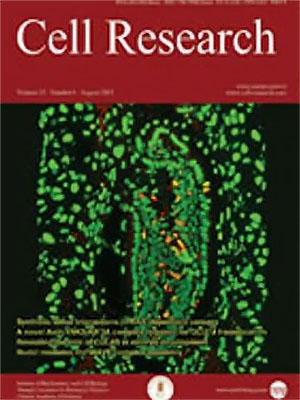
Volume 15, No 3, Mar 2005
ISSN: 1001-0602
EISSN: 1748-7838 2018
impact factor 17.848*
(Clarivate Analytics, 2019)
Volume 15 Issue 3, March 2005: 212-217
LETTERS TO THE EDITOR
Identification of EGFR kinase domain mutations among lung cancer patients in China: implication for targeted cancer therapy
Bao Ming QIN1, Xiao CHEN1, Jing De ZHU2, Duan Qing PEI1,*
1 Guangzhou Institute of Biomedicine and Health (GIBH), Chinese Academy of Sciences, Guangzhou 510663 China
2 The State-key Laboratory for Oncogenes and Related Genes, Shanghai Cancer Institute, Shanghai Jiatong University, LN2200/25, Xietu Road, Shanghai 200032, China
Correspondence: Duan Qing PEI(pei_duanqing@gibh.ac.cn)
Lung cancer is one of the leading causes of death with one of the lowest survival rates. However, a subset of lung cancer patients who are of Asian origin and carry somatic mutations in epidermal growth factor receptor or EGFR have responded remarkable well to two tyrosine kinase inhibitors, gefitinib and erlotinib. While EGFR mutation profiles have been reported from Japan, South Korea, and Taiwan, there is no such report from mainland of China where the largest pool of patients reside. In this report, we identified ten somatic mutations from a total of 41 lung cancer patients in China. Among them, seven mutations were found in 17 adenocarcinomas. In contrast to previous reports, eight of these mutations are deletions in exon 19 and two of these deletions are homozygous. These results suggest that a large portion of Chinese adenocarcinoma patients could benefit from gefitinib or erlotinib. This unique mutation profile provides a rationale to develop the next generation of EGFR inhibitors more suitable for the Chinese population.
FULL TEXT | PDF
Browse 1994


